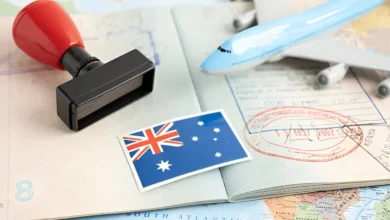
With the explosion of data in today’s digital era, important data management has been critical to the existence of an organisation with the surge of data. Although there is so much noise concerning the popularity of cloud storage and solid-state drives, it still tends to forget the importance of older-style storage devices, including tape media.
The archival tape has long been used because it was relatively cheap and reliable. Preservation and easy access to this data is not so easy, and a process that is not regarded highly: the tape media audit.
Tape Media Audits
A tape media audit is the detailed assessment of the tape storage facility of an organisation. It involves the assessment of adherence to the compliance requirements and data protection norms, efficiency of retrieval processes, relevancy of data stored on the tapes, and the physical condition thereof.
Through this course of action, organisations will be able to optimise on their time and resources to organise a tape media audit so as to keep their archival information viable and secure.
The Role of Tape Media in Modern Data Management
The newer data management technologies notwithstanding, tape media continued to play its part in the current data management strategies, especially in long-duration data retention.
Tape is a nice choice because it is very durable and has a reduced cost of ownership in comparison with other storage media. However, as a rather old technology, tape media is to be checked to ensure efficiency periodically and prevent possible threats.
Key Benefits of Regular Tape Media Audits
Consistent metering of tape lets you enjoy numerous advantages. They give an organisation confidence that the integrity of data is maintained and in case of disaster, recovery can be done in a short time.
Audits ensure that any cases of data degradation are detected and corrected, as well as making sure that the data retention approaches become congruous with the changing industry laws. Moreover, they can reveal possibilities of cost savings by removal of duplicate or obsolete data storage.
Best Practices in Conducting Tape Media Audits
Audits on the tape media can and ought to be methodical and broad-based. All the findings should be noted in detail and are to be followed effectively. This involves the updating of inventory systems, replenishment of tapes that are at risk of destruction, and also provision of the right environmental conditions under which there is stored.
One of the best practices is to involve the service of a specialist who is able to provide a body of experience in dealing with the auditing of tape media and the long-term preservation of data on tapes.
Challenges in Tape Media Management
Tape media are distinctively challenged when it comes to management. First, legacy tapes can be voluminous and making them organised and retrieved becomes an uphill task. Moreover, the devices and programs mandatory to read the old tape formats may become obsolete, making their data inaccessible unless proper planning was made.
Strategic Importance of Tape Media Auditing
A tape media audit is a strategy whose value cannot be overestimated. It protects its important historical information which could be under regulatory need or comprising of intellectual property.
The best-practiced audit is crucial to the development of a sustainable data management scheme that acknowledges the importance of all data whether in a central location or not.
Aligning with Data Compliance Standards
One of the most important aspects of data management is compliance with the standards. Data retention and privacy laws vary in accordance with the industry sectors and countries.
Auditing tape media practices will guarantee compliance with these legislative requirements so that the fines or even the legal ramifications that an organization would have to face, because of lack of compliance, would be avoided.
Enhancing Accessibility and Efficiency
The unexpected advantage of the tape media audits is the improvement of accessibility and efficiency. Organisations can simplify their retrieval procedures through the audits and catalogs of the contents of tapes resulting in the faster retrieval of valuable information required at the most opportune time.
This increase in efficiency will be a source of competitive advantage and it will reduce the downtime and it improves customer satisfaction.
Long-term Preservation through Tape Media Audits
Regular tape media audits are not a matter of choice especially when the data is to be preserved over long period of time. They also help prevent loss of valuable data because they find out threats to tape media like damage by the environment or by physical breakage ensuring that the historical records of an organisation remain intact so that they can be used even in the future.
The Cost Implications of Tape Media Audits
Tape media auditing by its cost implication should be seen as an investment and not a cost. The possible cost of a data breach or a data loss is extremely higher than the cost of a regular tape audit. They are an anticipatory data management activity that will eliminate the reactive expenditures in case of incidents happening with the data.
Selecting a Service Provider for Tape Media Audits
When choosing a service provider to help conduct a tape media audit, it is definitive. An agent that has certain expertise in the tape storage systems, is current on industry requirements, and has a history of rigorous audits should be sought. The choice of a service provider that would provide clear understanding and practical recommendations after the audit is advisable.
Conclusion
To have a competent mastery over data management it is important to recognise the need of a tape media audit. It is a very useful procedure that secures the life and availability of archival information, is standard to compliance and serves to maximise operational effectiveness. With business still struggling to find a middle ground in such matters as managing data, proactive proceedings such as tape media audits will help save one of their greatest assets, their data.
Finally, organisations should not disregard the essence of sustaining their legacy way of storage. Complete audit of tape media is a wise move in gaining control over data management and protecting the most valuable information, without which it might occur that the historical records will cease being a valuable asset later in the future.













